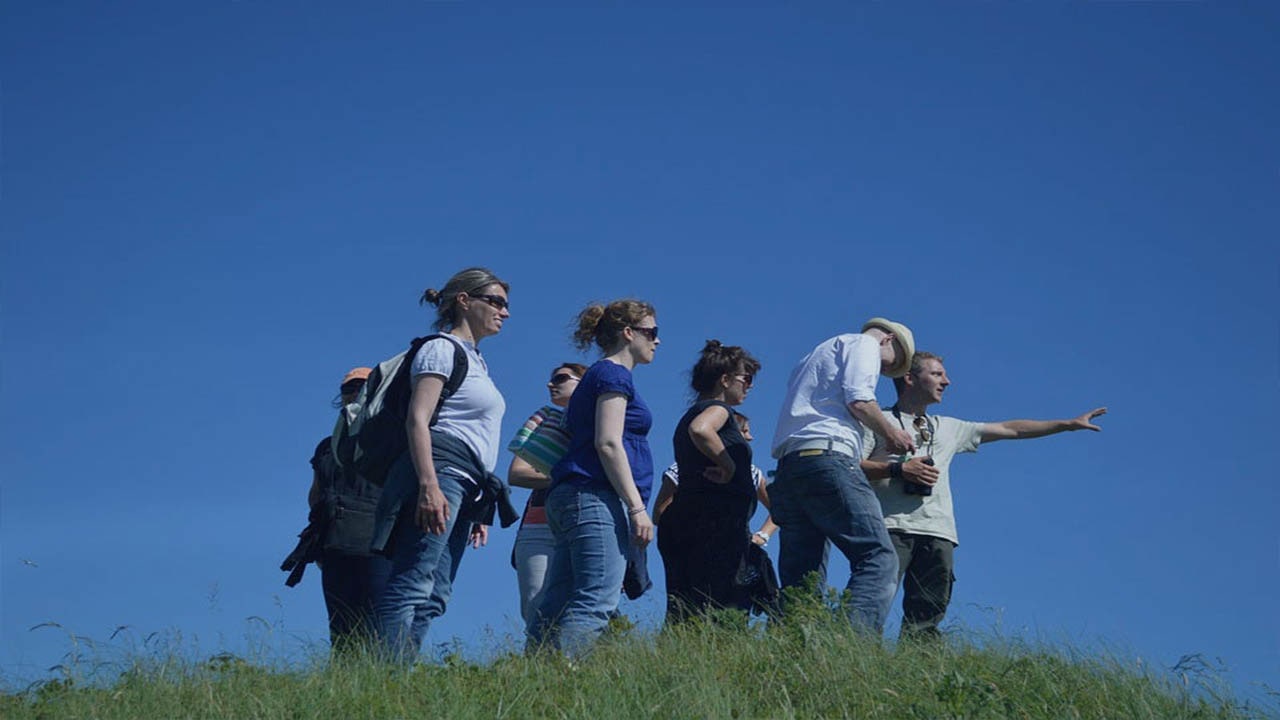While being a tour guide seems like an exciting and rewarding job, there are often unseen challenges and hardships that come with this profession. In this blog post, we will delve into the harsh realities of being a tour guide, focusing on the disadvantages that many individuals in this role face daily.
From long and irregular working hours to dealing with demanding clients, tour guides often find themselves struggling to maintain a work-life balance. The pressure to provide engaging and informative tours while managing a group of diverse personalities can be overwhelming. Moreover, the job can be physically demanding, requiring guides to be on their feet for extended periods and navigate through crowded tourist attractions.
Join us as we uncover the less glamorous side of being a tour guide and gain a deeper understanding of the sacrifices and challenges that these dedicated professionals endure behind the scenes.

Introduction: Unveiling the Glamourous Image
Being a tour guide often conjures up images of glamour and adventure, with the idea of exploring new places and sharing fascinating stories with eager travelers. However, the disadvantages of being a tour guide are often overlooked.
The Reality Behind the Glamour
While the job may seem glamorous on the surface, the reality is quite different. Tour guides often work long hours, dealing with unpredictable schedules and demanding tourists.
Challenges and Struggles
From managing large groups to handling unexpected situations, tour guides face a myriad of challenges. The pressure to provide engaging and informative tours can be overwhelming at times, especially when faced with language barriers or difficult guests.
Long Hours and Unpredictable Schedule
Being a tour guide often means dealing with long hours and an unpredictable schedule. Tour guides have to be available for tours that may start early in the morning or end late at night, depending on the itinerary. This can lead to irregular work hours that may not align with a typical 9-5 schedule, making it challenging to maintain a healthy work-life balance.
Irregular Work Hours
One of the main challenges of being a tour guide is the irregularity of work hours. Tour guides may have to work long hours without fixed breaks, especially during peak tourist seasons or when leading multi-day tours. This can result in fatigue and burnout, affecting the quality of the tour experience provided to guests. It is crucial for tour guides to prioritize self-care to avoid exhaustion.
Uncertainty in Scheduling
The unpredictable nature of tour scheduling can also pose challenges for tour guides. Last-minute changes to tour itineraries, unexpected delays, or cancellations can disrupt planned schedules and require quick adaptability. Flexibility and the ability to think on your feet are essential skills for tour guides to handle unforeseen circumstances efficiently.
:max_bytes(150000):strip_icc()/TAL-mexico-city-lead-MEXICOCITYTG01223-99370d83a62f4d87af9a6e44636ebb07.jpg) A tour guide leading a group in a bustling city. Credit: www.travelandleisure.com
A tour guide leading a group in a bustling city. Credit: www.travelandleisure.com
Dealing with Difficult Tourists
Being a tour guide comes with its own set of challenges, and one of the most daunting tasks is handling difficult tourists. These individuals can be demanding, impatient, or simply hard to please, which can test the patience and professionalism of even the most experienced guides.
Identifying Difficult Tourists
It’s essential to recognize the signs of difficult tourists early on to address any issues promptly. Look out for behaviors such as constant complaining, disregarding instructions, or showing disrespect towards the guide or other group members.
Effective Communication Strategies
When dealing with challenging tourists, communication is key. **Using a calm and assertive tone** can help diffuse tense situations and **reiterating important information** can ensure everyone is on the same page.
- Active Listening: Show empathy and listen actively to their concerns.
- Setting Boundaries: Establish the rules and boundaries of the tour.
Job Instability and Seasonal Employment
Being a tour guide can come with job instability and reliance on seasonal employment. Tour guiding often peaks during certain times of the year, such as peak tourist seasons, leaving tour guides with uncertain income and job security.
Financial Challenges
One of the major disadvantages of being a tour guide is the financial instability that comes with seasonal employment. Income fluctuations are common, with busy periods followed by slow seasons where work may be scarce.
Mental and Emotional Toll
The constant cycle of uncertainty and the pressure to secure employment during off-peak times can take a mental and emotional toll on tour guides. The stress of not knowing when the next job will come can be overwhelming.

Physical Demands and Emotional Toll
Being a tour guide involves significant physical demands and can take a toll on one’s emotional well-being. The job requires long hours of standing, walking, and sometimes even running to keep up with the group. Tour guides often have to carry heavy equipment, such as microphones or banners, adding to the physical strain.
Physical Challenges
In addition to the long hours on their feet, tour guides also face the challenge of navigating through crowded tourist attractions and uneven terrain. This constant movement and exposure to various weather conditions can lead to fatigue and exhaustion.
The physical demands of the job can result in muscle strain and physical discomfort, requiring tour guides to maintain a good level of physical fitness to cope with the rigors of the role.
Emotional Strain
On top of the physical challenges, tour guides often experience emotional toll due to dealing with difficult tourists or unforeseen circumstances during tours. They may need to manage stressful situations and address conflicts while maintaining a positive and professional demeanor.
Moreover, the pressure to deliver an engaging and informative tour can weigh heavily on the guide, leading to emotional burnout over time.
Lack of Personal Time and Social Life
Being a tour guide often means sacrificing personal time and a vibrant social life. Tour guides typically work long and irregular hours to accommodate the needs of travelers, which can leave little time for their own interests and relationships.
Isolation from Social Circles
Due to the nature of their work, tour guides may find themselves isolated from their friends and families, missing out on important occasions and gatherings.
This lack of personal time can lead to feelings of loneliness and disconnection from their social circles.
Impact on Mental Well-being
The constant stress and pressure of managing tours and ensuring a seamless experience for travelers can take a toll on a tour guide’s mental health.
- It’s essential for tour guides to find a balance between work and personal life to avoid burnout.
- Engaging in self-care activities and seeking support from friends and mental health professionals is crucial.
Moderate Earnings and Financial Challenges
One of the notable disadvantages of being a tour guide is the moderate earnings that often come with the profession. While sharing insights about exciting destinations and cultures can be fulfilling, the financial aspect can be challenging.
Income Fluctuations
Tour guides often face income fluctuations due to seasonal variations in tourism and the unpredictable nature of the industry. This uncertainty can make financial planning difficult and lead to stress.
Financial Insecurities
With moderate earnings, tour guides may struggle with financial insecurities such as difficulty in saving for the future, lack of job stability, and limited access to benefits like health insurance and retirement plans.
Despite the challenges, passion for travel and interacting with people can motivate many tour guides to overcome these financial obstacles.
Maintaining Passion and Resilience
Being a tour guide often comes with its own set of challenges and obstacles that can test one’s passion and resilience. To thrive in this demanding role, it is crucial to focus on maintaining a strong sense of dedication and perseverance.
The Importance of Passion
Passion is the driving force that fuels a tour guide’s enthusiasm and commitment to their job. It is essential to constantly remind oneself of the reasons why one chose this career path in the first place. Passion helps in delivering engaging tours and creating memorable experiences for tourists.
Strategies for Building Resilience
Resilience is the ability to bounce back from setbacks and challenges. Resilience can be built through various strategies such as practicing self-care, seeking support from colleagues, and maintaining a positive mindset even in difficult situations.
- Take breaks to rejuvenate and avoid burnout
- Develop effective coping mechanisms to deal with stress
- Engage in regular physical exercise to boost mental resilience
- Attend training sessions to enhance skills and knowledge
Frequently Asked Questions
What are some common challenges faced by tour guides?
- Tour guides often have to deal with demanding schedules, managing large groups of people, and balancing multiple responsibilities at once. They may also face language barriers, difficult weather conditions, and unexpected changes in plans.
Is being a tour guide a stressful job?
- Yes, being a tour guide can be stressful due to the need to constantly be organized, manage different personalities, and ensure the safety and satisfaction of guests. It can also be physically demanding, requiring long hours of standing and walking.
How do tour guides handle difficult situations with tourists?
- Tour guides are trained to remain calm and professional in challenging situations. They may use communication skills to de-escalate conflicts, offer alternative solutions, or seek assistance from authorities if needed.
What skills are important for a successful tour guide?
- Effective communication, organizational abilities, problem-solving skills, cultural knowledge, and a positive attitude are key traits for a successful tour guide. They should also be adaptable, and patient, and have a passion for travel and sharing experiences.
What are some rewards of being a tour guide?
- Despite the challenges, being a tour guide can be a fulfilling and rewarding career. Tour guides have the opportunity to meet people from diverse backgrounds, explore new places, and share their passion for history, culture, and adventure with others.
Final Thoughts
While being a tour guide can be a rewarding and exciting career path, it also comes with its fair share of challenges and disadvantages. From dealing with unpredictable schedules and long hours to managing demanding tourists and navigating through unexpected situations, tour guides often face a multitude of obstacles that can take a toll on their well-being. Additionally, the constant pressure to deliver flawless experiences and knowledge can be overwhelming.
Despite these challenges, the passion for travel and sharing knowledge about different cultures and destinations keeps many tour guides going. Aspiring tour guides must be aware of these hardships and prepare themselves mentally and emotionally to overcome them.

